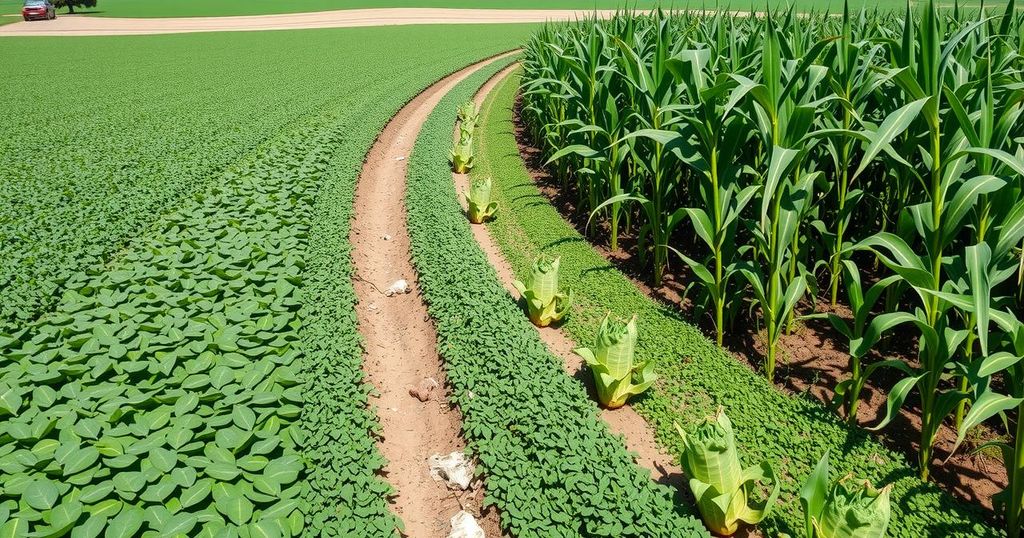Dry Weather in Argentina Drives Up Soybean and Corn Prices
Argentina’s dry weather has led to increases in soybean and corn prices, with futures rising by 1.29% and 0.78%, respectively, owing to fears of reduced crop yields. Kazakhstan has boosted its grain exports significantly. Conversely, French farmers are protesting against unfair competition. Such dynamics underscore the global shifts in agricultural markets influenced by climate change and trade strategies.
In response to dry weather conditions in Argentina, soybean and corn futures on the Chicago Board of Trade have experienced notable increases. Soybean prices rose by 1.29% to reach $10.04 per bushel, while corn prices climbed by 0.78% to $4.54 per bushel. This rise is attributed to concerns about the potential impact on Argentina’s 2024/25 crop yields, despite recent rainfall that provided some relief. Additionally, wheat futures saw a modest uptick of 0.8%, settling at $5.33 per bushel due to weather-related supply constraints worldwide. In contrast, Kazakhstan has strategically capitalized on the situation, exporting 3.7 million metric tons of new-harvest grain from September to December, a 54% increase compared to the previous year. However, not all agricultural sectors are thriving; French farmers have expressed discontent through protests, alleging unfair competition and stringent governmental regulations.
The recent weather challenges faced by Argentina illuminate the intricate relationships between climate conditions and agricultural productivity. Argentina is a significant player in the global grain market, particularly for soybeans and corn. The dry spell has raised concerns for the 2024/25 crop season, impacting expected yields and market dynamics. Concurrently, Kazakhstan has sought to augment its market presence by increasing grain exports, thereby altering the global trade landscape.
In conclusion, the ongoing dry weather in Argentina significantly influences global agricultural markets by pushing soybean and corn prices higher due to fears of reduced crop yields. This situation is further complicated by Kazakhstan’s remarkable export growth, highlighting the evolving complexities of international grain trade. The protests by French farmers reflect the mounting pressures on agricultural sectors amid changing trade conditions and regulations.
Original Source: finimize.com




Post Comment